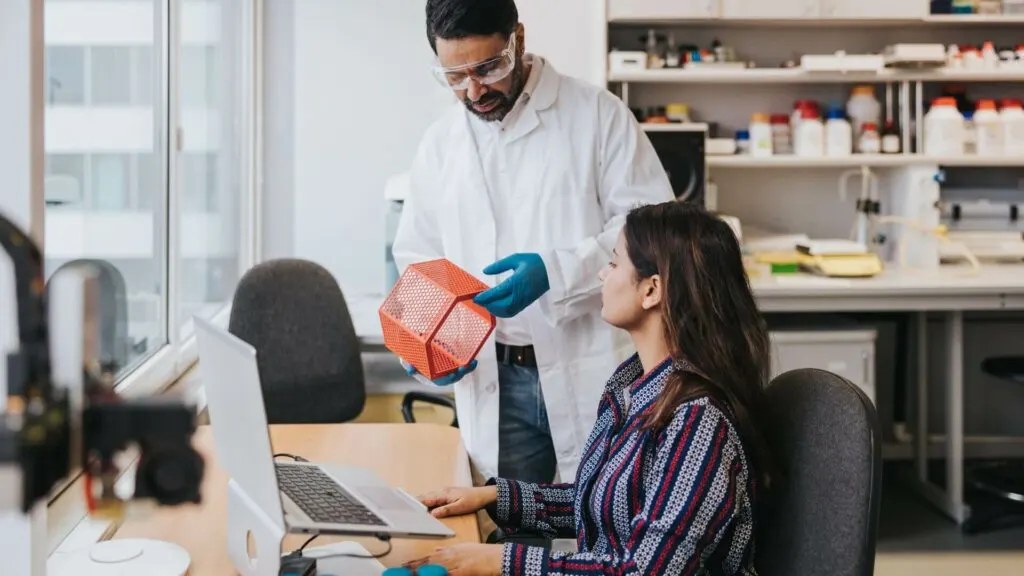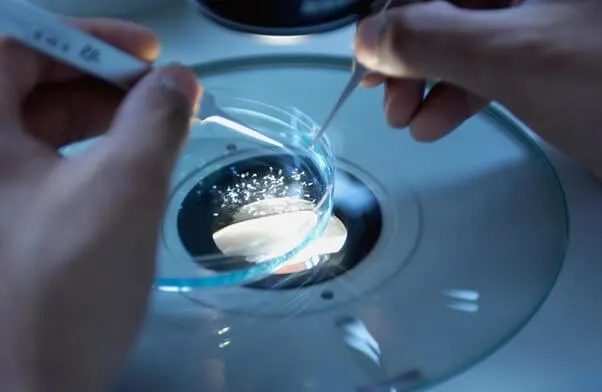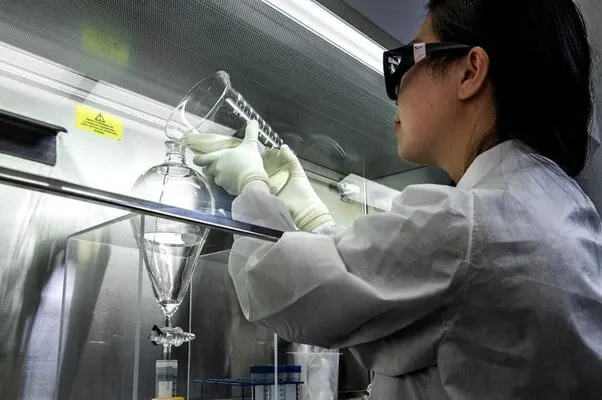Protein manufacturing is at the center of modern biotechnology, where scientists use genetic engineering and cellular machinery to manufacture enormous quantities of proteins. Our professional staff specializes in recombinant DNA technology, allowing us to design organisms and tailor protein production to specifications.
This blog will provide essential information and inspiration whether you are a seasoned researcher or just starting to explore the wide world of proteins.

What Are Custom Proteins?
Custom proteins are recombinant proteins created by custom manufacturing rather than commercial production. However, what exactly are recombinant proteins? Recombinant proteins are those made by cloning recombinant DNA into an expressional vector, which permits the gene to be expressed and messenger RNA to be translated.
A custom protein can be created by altering a gene with recombinant DNA techniques and custom DNA synthesis. Recombinant protein is a native protein that has undergone numerous modifications to produce more protein, alter gene sequences, and produce marketable goods. Learn more about the various protein kinds by reading on.
Protein Production Process
Protein production service in living organisms or a laboratory is called protein synthesis. Protein production technologies include recombinant DNA technology, cell-free protein synthesis, and extraction from natural sources. A general description of the protein production service using recombinant DNA technology is provided below:

- Gene identification and cloning: The first step is determining which gene encodes the requested protein. Various methods, such as genome sequencing or DNA library screening, can achieve this. After identifying the gene, it is cloned into an appropriate vector, such as a plasmid or a viral vector.
- Transformation and expression vector construction: The cloned gene is placed into a host organism, most commonly bacteria (Escherichia coli) or yeast (Saccharomyces cerevisiae). This is known as transformation. The gene is put into an expression vector containing regulatory elements such as promoter and terminator sequences that govern protein expression.
- Culturing the host organism: Under regulated conditions, the transformed host cells are cultured in an appropriate culture medium. This offers the essential nutrition and environment for the cells to grow and express the desired protein. The culture conditions may differ depending on the host organism and the specific protein generated.
- Protein expression and purification: The desired protein encoded by the cloned gene is produced by the host cells as they grow and divide. The protein can be found within the cell (inclusion bodies) or outside the cell (in bacterial systems). The protein is obtained by harvesting the cells and isolating and purifying the protein. Cell lysis, centrifugation, chromatography, and filtration are commonly used to eliminate undesirable cellular components and obtain a pure protein sample.
- Protein characterization: After the protein has been purified, it is subjected to a series of tests to ensure its identification and quality. Western blotting and Sodium dodecyl sulfate-polyacrylamide gel electrophoresis can quantify a protein’s molecular weight and confirm its specificity. Mass spectrometry, for example, can provide information about post-translational modifications or structural features.
- Protein formulation and storage: Depending on the protein’s intended function, it may be prepared with additions or stabilizers to improve its stability and shelf life. To maintain the protein’s integrity and activity, it is usually stored at low temperatures, such as -80°C.
Remembering that the protein manufacturing process varies based on the protein, the host organism, and the intended application is vital. In some circumstances, alternative approaches may be used, such as cell-free protein synthesis or extraction from natural sources.
Advantages of Custom Proteins

Reproducible Biological Activity
Years of expertise with a single production source diminish batch-to-batch volatility. Supplier changes are not possible, which is an issue with OEM items. You avoid lengthy, expensive, and time-consuming batch validations, and the situation worsens when the batch does not fit, and you must find and revalidate new suppliers.
Proteins have never been tested biologically. You risk investing time and resources in an antibody production service that will only suit your needs if you are well-educated.
Save Money
Custom manufacturers provide tremendous cost reductions and opportunities for smart money management. If your activity needs vast proteins, you can negotiate bulk pricing; a custom batch is usually less expensive after initial manufacturing.
Furthermore, production usually provides volume flexibility to accommodate expanding demand at a reduced cost. If you buy recombinant proteins regularly, comparing your prices to those of a custom manufacturer, including Mobile app development companies, may be useful.
It Doesn’t Require Institutional Review Board (IRB)
Because obtaining natural human proteins necessitates the collaboration of human volunteers, IRB approval is essential. As a result, more paperwork and time are spent waiting for documents to be authorized. This is not true with recombinant proteins, particularly those created through bespoke antibody services.
Offer More Feasibility/Flexibility to Your Project
How often have promising initiatives been shelved due to the high cost of reagents? This disadvantage frequently occurs in normal recombinant manufacturing but not in solid-phase peptide synthesis techniques and custom production services. As your project proceeds, you can generate variants from a wild-type protein.
Can Incorporate Unnatural Amino Acids
Recombinant proteins can contain unconventional amino acids, which are ensured using aminoacyl-tRNA synthetases. Unnatural amino acids can give proteins unexpected properties like increased enzyme activity or stability.
Biotechnology breakthroughs have accelerated and simplified the production of recombinant proteins for various applications. The use of RP in basic life science research, diagnostic reagents, and medical medicines has grown significantly. Their contribution to biotechnology is crucial. You must find a real and renowned bespoke protein synthesis company to reap the most benefits.

Jessi is the creative mind behind The Coffee Mom, a popular blog that combines parenting advice, travel tips, and a love for all things Disney. As a trusted Disney influencer and passionate storyteller, Jessi’s authentic insights and relatable content resonate with readers worldwide.
